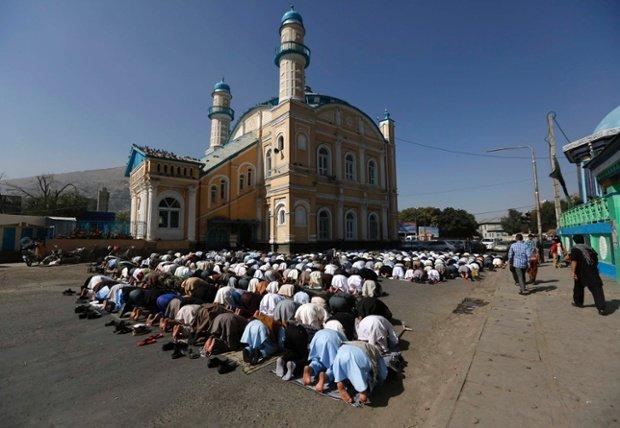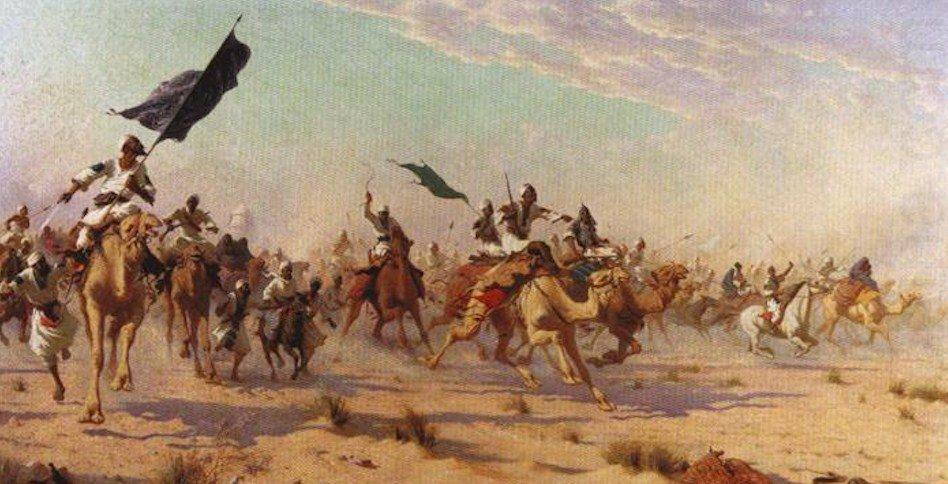Learning from the early righteous Muslims is critical if we wish to revive Islamic practices in their true spirit. How did our salaf, the pious predecessors, observe Ramadan? In this article, we compile some narrations that throw light on their mindset and striving during this blessed month.
1. Wishing for Ramadan
Mu‘alla ibn al-Fadhl said, “The companions of the Prophet ﷺ would supplicate to Allah the Almighty for six months in advance to prolong their life until Ramadan. Then they used to supplicate Him for six months (after that) to accept their righteous deeds in it.”
Yahya ibn Abi Katheer said, “Among their invocations was, ‘O Allah deliver me to Ramadan and deliver Ramadan to me and accept it from me.’”
2. Considering it a purifier
‘Umar ibn al-Khattab, may Allah be pleased with him, would say at the arrival of Ramadan, “Welcome to the one who purifies us from sins!”
3. Seeking a lot of forgiveness
‘Abdullah ibn ‘Umar, may Allah be pleased with him, used to make this du‘aa upon breaking his fast: “Allahumma inni as’aluka birahmatika al-lati wasi‘at kulla shay’in an taghfira li (O Allah, I ask You by Your mercy which encompasses all things, that You forgive me).”
4. Abundant recitation of the Qur’an
Fatimah, may Allah be pleased with her, narrated that her father, the Prophet ﷺ told her that Jibreel would review the Qur’an with him once every year, and in the year of his death he reviewed it with him twice. [Al-Bukhari and Muslim], and from the Hadeeth of Ibn ‘Abbas that this was done at night. [Al-Bukhari and Muslim]
Some of the Companions, may Allah be pleased with them, would do that every seven days in the taraweeh. ‘Imraan ibn Hudayr said, “Abu Mijlaz would lead the night prayer in the neighborhood during the month of Ramadan, completing the recitation of the Qur’an entirely every seven days.”
Some of our righteous predecessors would complete it while praying at night during Ramadan every three nights, some others in seven nights while some others every ten nights.
Sufyaan ath-Thawri would leave all his work at the arrival of the blessed month of Ramadan and dedicate himself to the recitation of the Noble Qur’an.
5. Long taraweeh prayers
As-Saa’ib ibn Yazeed said, “‘Umar ibn al-Khattaab, may Allah be pleased with him, ordered Ubay ibn Ka‘b and Tameem ad-Daari to lead people in praying eleven rak‘ahs during Ramadan. The reciter would recite hundreds of verses to the extent that we would have to support ourselves with staves due to the lengthiness of the prayer and would not depart until the first signs of dawn.”
‘Abdur-Rahmaan ibn Hurmuz said, “I heard the Companions of the Prophet ﷺ cursing the disbelievers in Ramadan.” He added, “The reciters would recite Surah al-Baqarah in eight rak‘ahs, and if they recited it in twelve rak‘ahs people would think that it was short.”
‘By the time we finished our night prayers in Ramadan, we would rush the servants to prepare the food in fear of fajr approaching.’
Naafi‘ ibn ‘Umar ibn ‘Abdullah said, “I heard Ibn Abi Mulaykah saying, ‘I would lead people in prayer during Ramadan and read Surah Fātir and the like in one rak‘ah and no one complained about that.”
It was also narrated that they would continue praying until it was very close to dawn. ‘Abdullah ibn Abi Bakr said, “I heard my father saying, ‘By the time we finished our night prayers in Ramadan, we would rush the servants to prepare the food in fear of fajr approaching.’”
6. Private Worship
Naafi‘, the freed slave of Ibn ‘Umar, may Allah be pleased with him, said, “Ibn ‘Umar would pray in his house during Ramadan. When the people departed from the mosque, he would go off to the mosque of the Prophet ﷺ taking a flask of water with him. He would not leave the mosque again until after performing the morning prayer.”
7. Being Generous
Ibn ‘Abbas, may Allah be pleased with him and his father, said, “The Messenger of Allah ﷺ was the most generous person, and he would be even more so in the month of Ramadan because Jibreel would meet him every night in the month of Ramadan till it elapsed. The Messenger of Allah ﷺ would recite the Qur’an for him. When Jibreel met him, he would be more generous than the blowing wind in doing good.” [Al-Bukhari and Muslim]
Ibn Rajab said, “Ash-Shaafi‘i said it is better for men to be exceedingly generous during the blessed month of Ramadan, following the example of the Messenger of Allah ﷺ .”
Ibn ‘Umar, may Allah be pleased with him, did not have his Iftar except in the company of the needy.
9. Eating Less
Ibrahim ibn Abi Ayyoob said, “Muhammad ibn ‘Amr al-Ghazzi would eat only two meals a day throughout the whole month of Ramadan.”
Muhammad ibn Waasi‘ said, “Whoever eats little will understand and make others understand and will be clear and humble. Overeating weighs a person down and keeps him from much of what he wants [to accomplish].”
Salamah ibn Sa‘eed said, “A man would be taunted because of overeating in much the same way he would be when he committed a sin.”
Ibn Umar narrated that a man burped in the presence of the Messenger of Allah ﷺ who responded: “Keep your burps away from us, for the one who eats his fill the most in this world will be hungry for the longest time on the Day of Resurrection.” [At-Tirmidhi, classified hasan by al-Albani]
10. Guarding the Tongue
Abu Hurayrah, may Allah be pleased with him, narrated that the Messenger of Allah ﷺ said: “Whoever does not give up false speech and acting upon it, Allah has no need of his giving up his food and drink.” [Al-Bukhari]
Jabir ibn ‘Abdullah, may Allah be pleased with them, said, “If you fast, then guard your ears, eyes and tongue against lies and evil deeds; do not abuse your servants; be tranquil and dignified on the day you observe fasting; do not let the day when you do not fast and the day when you fast be the same.” [Ibn Abi Shaybah in the book of fasting, chapter of avoiding too much talking and lying for the fasting person 2/422]
“Whoever avoids two things, then his fast will be safe: backbiting and telling lies.”
‘Ataa’ said,“I heard Abu Hurayrah, may Allah be pleased with him, saying. ‘If you are fasting, do not act in an ignorant manner or insult people, and if someone attacks you, then say, ‘I am fasting.’’” [‘Abdur-Razzaaq in Al-Musannaf]
Mujahid, may Allah have mercy upon him, said, “Whoever avoids two things, then his fast will be safe: backbiting and telling lies.” [Ibn Abi Shaybah]
11. The Last 10 Nights
Aisha, may Allah be pleased with her, said, “When the last ten days began, the Prophet ﷺ would stay up at night, wake his family, exert himself, and tie his izaar (lower garment) tight.” [Al-Bukhari and Muslim]
Ibn Jareer said,“Many of the righteous predecessors would perform ghusl (ritual bathing) every night during the last ten days of Ramadan. Ayyoob as-Sakhtiyaani would do the same and Imam Malik would do so for the night in which he believed was the Night of al-Qadr. So he would wash himself, wear nice fragrance and dress up in a garment which he did not wear again except in the Ramadan of the following year.”
Let us try as much as we can to follow their footsteps so we may be like them and attain success in sha Allah.
Limited free articles. Subscribe for full access.






 Dr. Bilal Philips
Dr. Bilal Philips